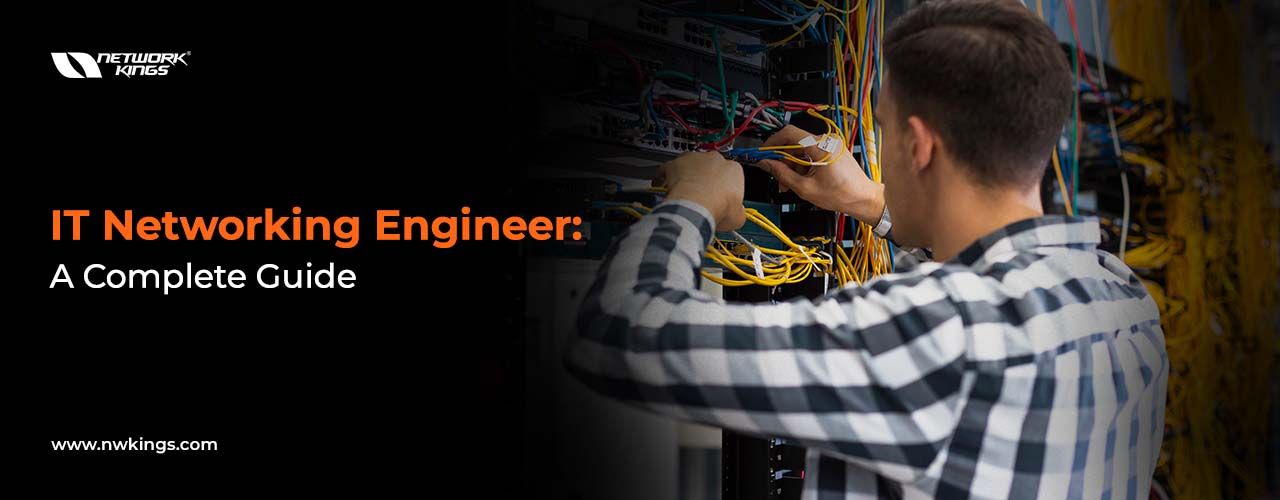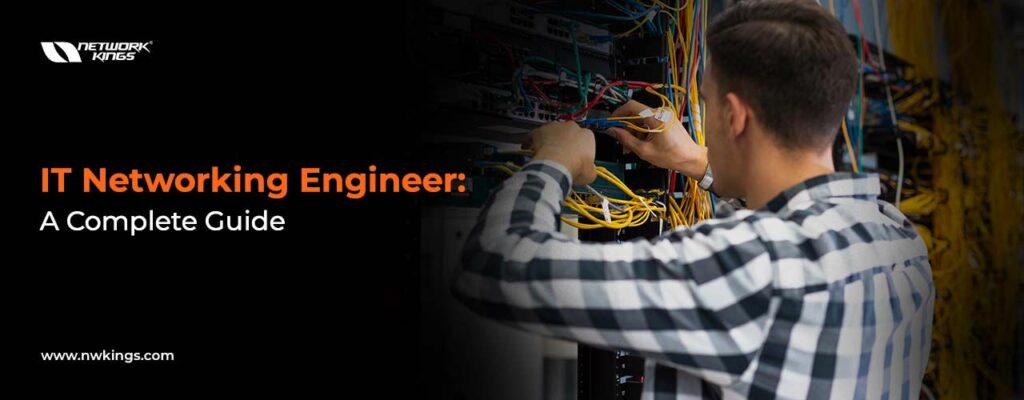
Technology carries on developing, and network engineering is an always-growing field of IT solutions. For those after breaking into the profession, a career as an IT Networking Engineer can be one of the most rewarding and financially stable paths out there. From planning system architecture and efficient network administration to providing technical support and tackling issues – a Network Engineer has an essential part in everyday operations for businesses all over the globe. Flaunting cutting-edge hardware plus software techs; networking engineers help organisations stay linked within this ever-more digital world. What’s even better? You get to work with some cool gizmos!
Exploring the Role of an IT Networking Engineer

Are you an experienced IT networking engineer or a total newbie? It doesn’t matter, because whatever your level of knowledge is the role of a network engineer is essential for many organisations. Being part of this profession requires a deep understanding and expertise in the tech industry as well as an awareness of how networks are used within different organisations and frameworks.
As a network engineer, it will be your responsibility to design computer networks across businesses while also maintaining them, improving upon them and planning simultaneously! Seriously speaking though the prime objective for any network engineer would be to make sure their organisation’s operations on its networking system run smoothly with minimum hardware/software failures.
Network engineers have a range of duties when it comes to setting up and maintaining networks. This could include anything from creating new networks, getting existing ones running smoothly or changing them according to any changes needed for the organisation’s goals or regulations. It also involves tackling more technical tasks like configuring firewalls and routers, as well as connecting cables and hubs – all work that requires a solid understanding of network engineering principles.
But having only this knowledge isn’t enough: these professionals need to be able to spot errors in the system quickly too which means they must use tests on components or look out for subtle shifts around them if something goes awry with their setup; then think about efficient ways data can travel between points so everything runs without hiccups – an essential part of network engineer’s job!
Network Engineers are an integral part of keeping any organisation’s internal networking architecture up and running. From the initial conception to installation and maintenance, they must possess a working knowledge of both hardware such as fibre optics and wireless networks; plus protocols like Ethernet over IP (EoIP). Software tools including performance monitoring software can help them evaluate system efficiency whilst also being able to identify areas for improvement in terms of reliability or cost effectiveness.
Plus with new technologies coming out all the time engineers must keep abreast so their respective systems remain at peak levels when required. In short, then, success relies upon having strong problem-solving skills along with maintaining high-security standards – not forgetting to stay one step ahead technologically!
Fundamental Responsibilities of IT Networking Engineers
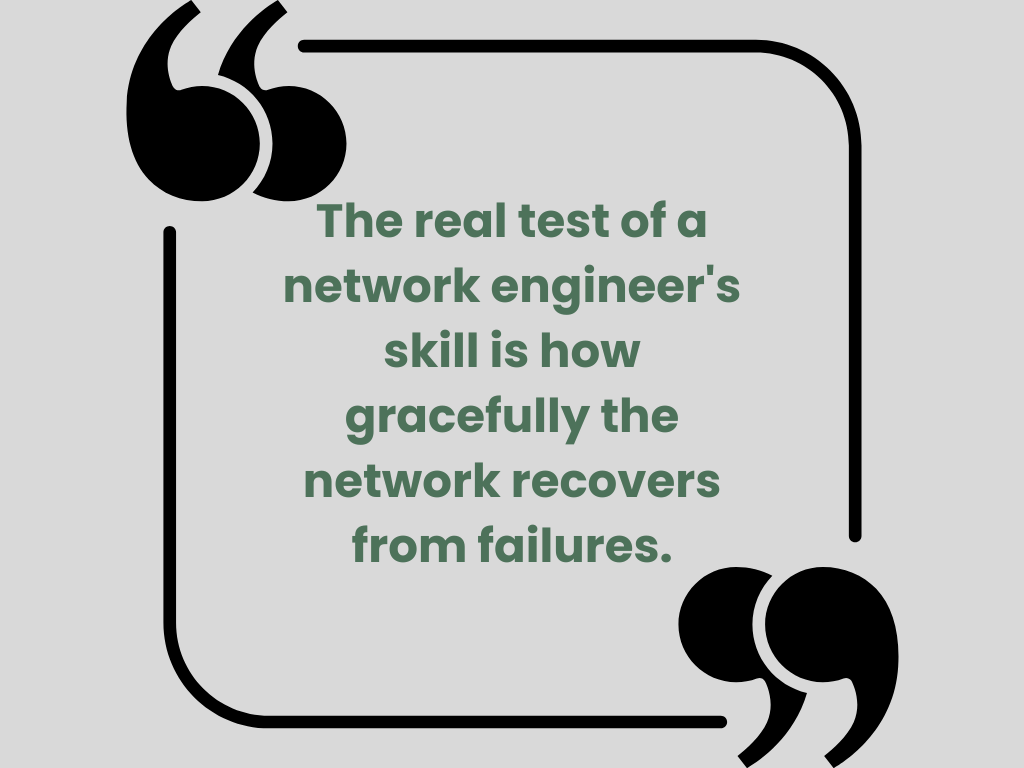
As an IT networking engineer, numerous fundamental duties need to be taken into account. The most essential of these include designing, installing, preserving and diagnosing various kinds of networks. This involves developing the network architecture from scratch including its nodes, protocols and physical connections as well as establishing who has access to what data programs and hardware on the system. Once a network is operational it’s then down to the job of a networking engineer for all components to run smoothly and securely making sure everything works properly and safely at maximum effectiveness.
Networking engineers have a pretty important job; they have to make sure that all the hardware and software within an organisation are running properly. This means keeping track of everything, from system performance to any necessary updates or upgrades for both software and hardware – not letting anything slip through the cracks! Of course, it also includes solving problems as soon as they arise.
What’s more, networking engineers must stay up-to-date with industry trends so that security issues can be nipped in the bud before becoming too serious. Protecting networks against intruders is one of their primary duties – this requires knowledge about firewalls and antivirus systems plus an understanding of encryption technologies and intrusion detection frameworks.
Networking engineers have a lot of responsibility when it comes to implementing measures that protect sensitive data from being accessed without authorization, as well as reducing the risks associated with cyber threats such as malware or ransomware. They also need to ensure that critical information is backed up securely on servers or cloud storage services in case there are issues related to hardware and software used for their networks.
The main job responsibilities of networking engineers involve setting up and managing both local area networks (LANs) and wide area networks (WANs). This requires having extensive knowledge about various systems like active directory domains or group policies, along with expertise regarding routing protocols such as TCP or IP layers so efficient communication between nodes within one network -or between connected ones- can be maintained using special approaches like Load Balancers and Multi-Path routing techniques.
Furthermore, they must deploy best practices while balancing cost-effectiveness; all whilst providing technical support depending on customers’ specific needs and requirements.
Insights into the Field of IT Solutions
When it comes to IT Solutions, there’s no such thing as a one-stop shop. It all depends on the organisation and their funds – what kind of technological solutions are available for business owners? But what is an ‘IT solution’? What does an IT Networking Engineer do when it relates to these kinds of services?
An IT solution can be anything from designing secure networks for companies or fitting special software suited for particular needs. The role of an IT networking engineer includes constructing, introducing and keeping up those systems so businesses can reap the rewards from them.
Being an IT networking engineer is no easy task. It requires a combination of technical knowledge, interpersonal skills and an understanding of the workings of various networks and how they interconnect with each other.
From routers to switches to firewalls – all these must be mastered by engineers to succeed in their careers. Not only that but also VPNs, wireless access points and certain software issues need addressing if something’s not working correctly or performance is lagging due to some kind of problem within the network infrastructure itself. This takes a lot more than your regular eye for tech!
An IT networking engineer needs to stay up-to-date with the ever-developing technology landscape, so they can guarantee their organisation remains cutthroat and current on the most recent progressions in tech. They ought to have a strong customer service foundation as well, to help users set up their system or troubleshoot any technical issues that might come after installation.
The role of an IT networker engineer is consistently changing because of expanding demand from businesses seeking new and enhanced technology solutions which optimize forms while limiting costs. That being said it’s key for them to have solid communication abilities enabling them to explain complex ideas yet likewise be mindful and proficient when collaborating with customers or different partners within their organization; this permits them to secure speedy resolution times while keeping client fulfilment all through the procedure.
Significance of System Architecture in IT Networking
Mastering the Art of Network Administration
Being an IT networking engineer, it’s paramount to get a handle on the importance of system architecture. In simple terms, the system architecture can be understood as an overall layout for a structure or thing made up of various components that are related and work together to achieve something specific. This includes elucidating both the relationships between different parts – as well as principles which direct its design and evolution over time.
It’s essentially just breaking down intricate information systems into easily digestible sections so they will interact with each other correctly. Across all industries but particularly within IT network engineering, there is a massive value attached to having robustly designed architectures since these allow for greater reliability, scalability and security too – you are future-proofing any setup!
One of the key elements in architecture is its adaptability to varying requirements and settings. That means that as technology gets more complex or new business needs arise, a suitable system architecture can be applied so they fit into existing systems with no disruption or necessitating huge modifications.
Knowing how different components of the network collaborate allows IT networking engineers to create plans for reliable service delivery while reducing danger from external threats like viruses, malware and hackers. With these strategies in place, it is easier than ever before to keep your data safe without compromising performance – something that businesses cannot afford to lose out on!
Having a well-organised system architecture is invaluable when something isn’t working correctly. Detailed diagrams showing all of the components in a networked system – such as servers, workstations and routers – are vital for IT professionals to identify where problems occur and put them right if needed. The diagrams also help them detect any areas which might be underperforming due to lacklustre hardware or software configurations; this enables these experts to make necessary changes before anything goes seriously wrong.
System architecture is essential for making sure that any IT network runs reliably and securely. It is based on industry standards like IEEE 802:11 for wireless networks or OSI model when it comes to computer networks which makes components from different vendors more compatible with each other, thus reducing complexity since you do not have to learn multiple proprietary solutions that may only differ slightly in design yet offer similar features.
Additionally, having this standardised reference point lets networking engineers identify and solve problems quickly while also protecting against malicious activity coming from outside sources. All of these benefits mean a system architecture plays an important role in the overall security of the network!

Being a Networking Engineer in IT is mastering the art of network administration. Responsibilities for these professionals are vast, from setting up and configuring networks to keeping them secure. The role includes configuration of routers, switches, servers and firewalls plus ensuring consistency and performance of local area network (LAN) & wide area network (WAN).
Understanding fundamentals like IP addressing, DHCP as well and DNS is essential too! Gaining proficiency in these precise skills means that hands-on experience with networking hardware will be necessary – after all, it is always easier to learn by doing rather than just reading about something, isn’t it?
It’s clear that knowing how to configure hardware from multiple vendors effectively is essential for an IT Networking Engineer. This means taking the time to get well acquainted with different products so they can be set up in the most efficient way possible. It often requires on-the-job training and experience just to comprehend all of a device or maker’s configuration possibilities.
Plus, it isn’t enough only to have hardware skills – you need software understanding too such as programming languages like Python or Bash which are used for task automation and making control tools. How would you handle this?
Looking after a network today requires knowledge of an extensive range of technologies, from traditional on-site deployments to virtualised systems hosted in platforms like Amazon Web Services (AWS) and Microsoft Azure. Network admins must have great familiarity with security principles to ensure their networks are safe against attacks or theft.
Encryption and authentication methods defend confidential info travelling over the web or stored inside an organisation’s networks. To make sure that valuable data isn’t misused by third parties or staff members who may be up to no good, businesses need to set up robust safety measures throughout the whole company.
But IT professionals needn’t only focus on keeping current infrastructure secure; they should also stay informed about new technology so they can suggest sensible ways these inventions could work within existing structures and processes – getting more out while using fewer resources too!
Tackling Challenges in Technical Support
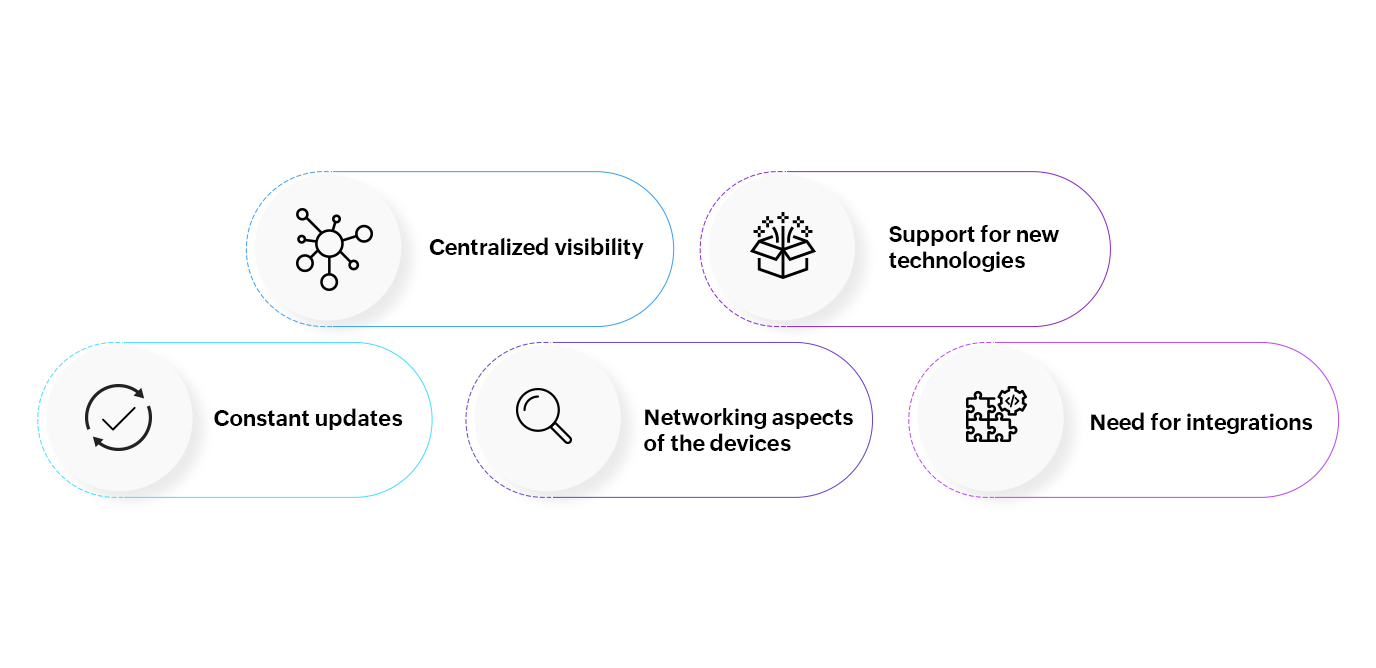
Being an IT Networking Engineer comes with its own set of challenges, especially when it comes to providing technical support. A primary issue is the customer having difficulty understanding complicated tech jargon – this can be immensely frustrating for both parties involved. To succeed in this role you must possess the ability to express complex concepts using straightforward language that customers can understand and follow instructions on easily; taking a little time extra at each stage will build trust between yourself and your customer which will make issues less likely to occur again in future!
In addition, they must be able to identify potential solutions for any issues quickly and successfully troubleshoot using research and best practices. Keeping up with industry standards and regulations is also a common challenge in technical support as technology evolves rapidly; meaning engineers need to stay aware of the latest updates, releases and trends so that accurate information can be provided. This necessitates dedication, curiosity as well and observation capabilities – all essential characteristics of an effective tech support engineer.
Adapting to multiple environments is critical when it comes to working in tech support since each organisation will have its set policies & procedures which require the engineer to be malleable while making sure of compliance with those accepted standards too. The capability of swiftly thinking on your feet becomes crucial here because every situation would be one-off thus understanding how these may require alterations instantly is formally important for success within this role.
In conclusion, providing proficient technical assistance involves various aptitudes including problem-solving talents, communication defines, adaption lastly profound attention towards detail – such qualities are vital if you intend to become an outstanding IT Network Engineer!
The Impact of IT Networking on Business Efficiency

IT networking has become vital for businesses of all kinds, allowing them to join devices and systems together to share information easily. Of course, it isn’t just about the hardware; IT network engineers are pivotal when it comes to helping companies set up efficient and secure processes as well as networks. Their responsibilities encompass a variety of roles like establishing networks, tackling connection issues, managing user permissions levels plus looking after existing systems – only name but a few!
Nevertheless, the influence of an IT networking engineer doesn’t simply stop at connecting devices; they can have a major effect on how your organisation’s services or products are provided. By grasping all those complexities of networks and how distinct components interact with each other, they’ll help you make sure that maximum performance is achieved from any given system or network. Having such understanding can be highly beneficial when it comes to making efficiency throughout your company reach its peak point – what would this mean for productivity?
An effective network setup can be integral in allowing teams across branches to connect quickly and securely, fostering real-time communication for improved collaboration. Having someone who understands the inner workings of IT infrastructure is a surefire way to keep your system up-to-date with any complex needs – without lagging behind competitors.
An experienced IT networking engineer also boasts invaluable security benefits; as hackers devise increasingly sophisticated methods to infiltrate virtual or physical networks, it’s vital to have constant vigilance over systems and a swift response if necessary – something only an expert would understand completely. Therefore, hiring one could encompass extra levels of protection against cyber threats while simultaneously adhering to GDPR regarding data privacy.
Career Progression for Network Engineers

As an IT Networking Engineer, career progression is key to help you stand out from the crowd. Not only do you need to have the requisite skills and knowledge for your job role but it’s also important that you keep on honing and developing them too. Whether you’re in line for a promotion or want to test yourself more, there are several routes available if looking to progress your networking engineering career.
One way of enhancing prospects comes through obtaining additional accreditations or certifications pertinent to this field – something which could add gravitas when applying for new roles down the line! But don’t forget, gaining these qualifications isn’t just about ticking boxes either; they will equip you with practical tools and techniques necessary to get ahead in today’s ever-changing technological climate – so why not make sure to invest time into getting accredited?
Even though the majority of jobs will necessitate specific qualifications already, demonstrating to employers what else you know can provide an advantage over somebody who does not possess that extra expertise or experience. Depending on the networks you install or set up, having industry-recognised accreditations will demonstrate to potential employers that you are reliable and highly proficient.
Additionally, it is also possible for one to enhance their skill set which could be beneficial for positions further down in future – How might this give me a competitive edge? What new skills would I need if I was aiming higher than my current position?
It’s essential to remain ahead when it comes to technology as time passes, otherwise, you can miss out on chances that require a certain set of skills. Say for example if an organisation needs someone who has managed cloud computing before then having the ability to prove your understanding and expertise with today’s network technologies could give you an edge in these sorts of roles.
Moreover, networking engineers must seize any chance they get by attending conferences or workshops put together by tech companies or related groups in their industry. How great would it be to learn new tricks from innovators? As such events help make connections too – what other ways can one network beyond online platforms like LinkedIn?
It’s no secret that getting involved in professional development activities is an excellent way to advance your career as an IT Networking Engineer. Not only will this bring value towards achieving your targets, but it also provides you with the chance to network with other professionals within your industry and stay up-to-date on any advancements in related topics – both of which are priceless when increasing existing knowledge or keeping track of recent trends.
At the end of it all, staying enthusiastic plays a huge part if you’re looking to progress further along this particular career path – every single step counts! As long as you remain dedicated and work hard like for any job role; investing effort into pursuing success can be an extremely rewarding endeavour.
Essential Skills for Aspiring Network Engineers
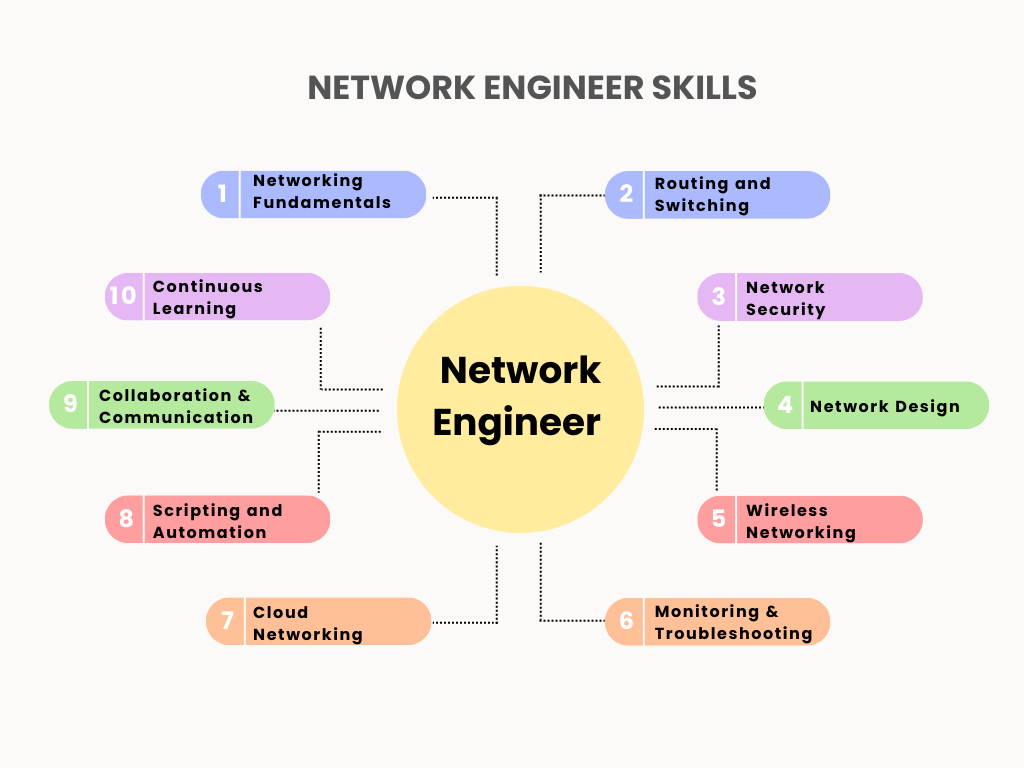
The life of a network engineer can be very rewarding. It’s an in-demand technical role that requires problem-solving, being able to think critically and having great communication skills. If you’re considering taking on this career path as a network engineer, make sure you familiarise yourself with the essential abilities needed for success. To start with, it is hugely important to have a fundamental understanding of IT systems.
Network engineers need to comprehend how networks are organised and must be capable of troubleshooting any problems when they emerge. You should be aware of basics concerning routers; switches; firewalls and VPNs – plus grasp the concept behind interworking between multiple networking protocols too!
Knowing the ins and outs of networks is crucial when constructing secure systems that can be used remotely or performing maintenance upgrades to existing networking frameworks. What could be more beneficial for employers than someone who holds this expertise? But, it doesn’t stop there – having a good grasp on one (or better yet several!) coding languages such as Python or JavaScript will give you an extra edge in your career too; being able to develop code which helps speed up complex tasks makes you faster at getting jobs done and increases your worth!
Having experience with scripting languages such as Bash can make a world of difference for network engineers, saving them time and money. It enables them to issue commands simultaneously across multiple devices in no time – something that makes life significantly easier when dealing with large networks.
Of course, good communication skills go hand-in-hand with any aspiring network engineer out there: you’ll likely be working closely on projects with customers or other staff members so being able to deliver instructions simply is vital. Not only that but having excellent customer service skills will come in handy too – chances are at some point you may have been asked by someone over the phone or email about how they could fix an existing problem – hence why interpersonal abilities are also necessary here!
Embracing Future Trends in Network Engineering

For anyone pondering a job in IT networking engineering, staying informed of the rapid advances and ever-evolving trends in this area is hugely important. Network engineering encompasses both physical infrastructure as well as virtual, software-driven components – so it pays to be up to date with new technologies and developments if you want to stay one step ahead.
At present, we’re seeing an increased focus on cloud solutions plus network virtualization which can bring big benefits for organisations who rely heavily on quick operations along with large networks across multiple sites. How could these advancements make your work easier? What opportunities might there be if you keep pace with tech development?
The possibility of scaling networks quickly is proving advantageous to businesses, as it decreases their operational costs while also lifting their performance. Automation and machine learning-based analytics are becoming more popular too – and not only do they give a speed boost but allow for the invention of new products that can enhance business success even further. Wireless technologies have grown in popularity in network engineering; Wi-Fi now adorns many offices, restaurants or social hubs with wireless access available pretty much everywhere we go!
IT networking engineers need to have a thorough comprehension of how wireless technology operates and the most effective way to optimise it for their business requirements. Security threats still represent an enormous worry for all companies that rely on IT networks but this has given rise to more secure alternatives such as encryption algorithms or two-factor authentication systems, which are becoming increasingly standardised over recent years. Consequently, IT networking engineers must know about these instruments and fashions so they can introduce them when vital – guaranteeing their customers’ data is constantly guarded against danger.
Wrapping Up!
To sum up, it’s evident that if someone wants to advance in the IT solutions industry then becoming a Network Engineer is essential. To be successful they must familiarise themselves with network architecture, administration and technical support to guarantee firms operate efficiently. With training and suitable education, anyone can make something of themself as a Network Engineer by providing top-notch IT services for large or small establishments alike. Wouldn’t you agree that being able to do this is incredibly rewarding?
Do you want to take a massive leap forward in your career and become a Network Engineer? Look no further! Our Network Engineer Master Program has everything that is needed to take your skills to the next level, as well as unlock new opportunities. When you join the course, you will get invaluable expertise in computer networking, cloud computing, security and more besides.
The industry-recognised certification which comes with our program can set you apart from other professionals around – giving you an edge over others while also paving the way for a rewarding career ahead. So don’t waste any time – sign up today for our world-class Network Engineering Master Program!
Are you keen to kickstart your career as a Network Engineer? Then check out our network engineering master program and make the most of this opportunity to hone your skills in networking. Our course is designed with hands-on tuition, so you can have all the necessary technical experience for installation configuration, management and protection of different networks. Plus, be up-to-date on emerging technologies such as virtualization, cloud computing software-defined networking etc..
You will also know how important it is to secure systems from cyber threats while honing crucial troubleshooting skill sets which ensure connectivity always stays alive! We provide flexible online classes that fit into any schedule; taught by industry experts who bring decades worth of practical knowledge plus loads more resources essential for flourishing within this profession – what’s holding you back then? So don’t wait around any more – begin creating an amazing future today with us! Enroll now on our Master’s Program in Network Engineering.
Happy Learning!

